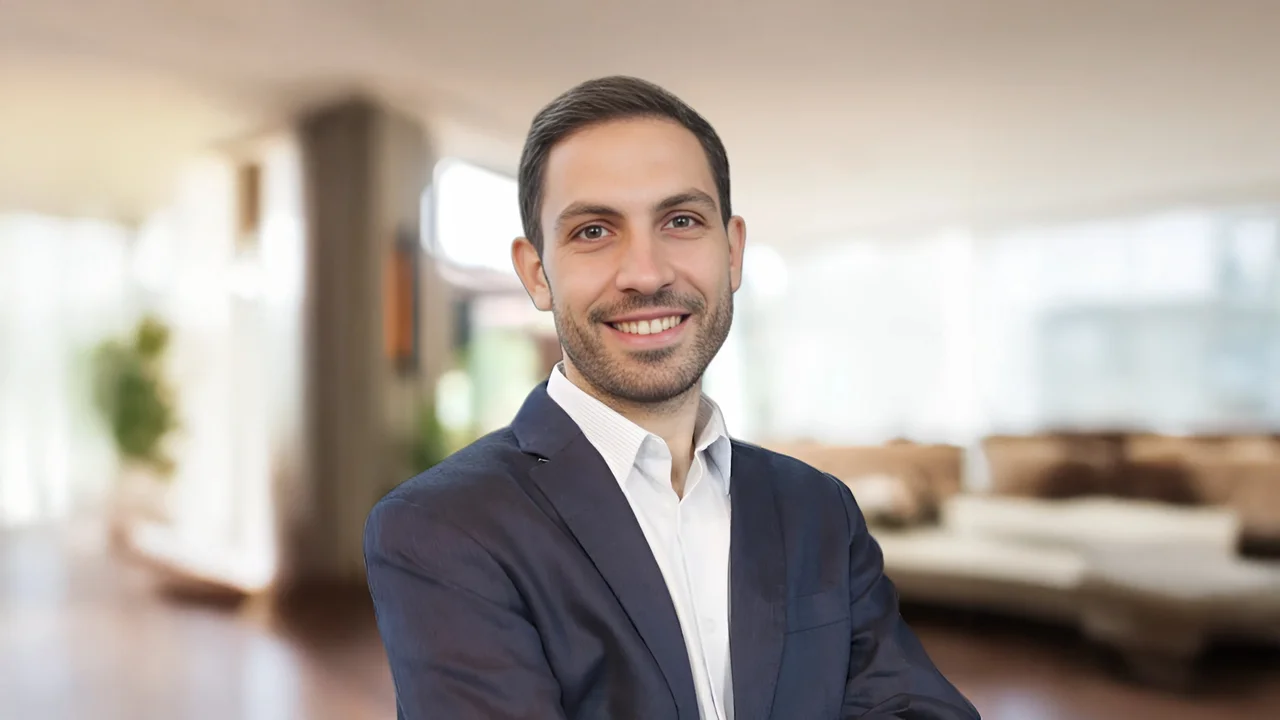
Charalambos (Harrys) Konstantinou
Professor Konstantinou is an expert in critical infrastructure security and resilience, focusing on smart grid technology, renewable energy integration and real-time simulation.
Biography
Charalambos (Harrys) Konstantinou is currently an Associate Professor of Electrical and Computer Engineering (ECE) and an Affiliate Professor of Computer Science (CS) with the Computer, Electrical and Mathematical Science and Engineering Division (CEMSE), King Abdullah University of Science and Technology (KAUST), Thuwal, Saudi Arabia. He is the Principal Investigator (PI) of the Secure Next Generation Resilient Systems Laboratory (SENTRY), a co-PI of the Advanced Grid Laboratory for Cyber-Physical Energy System Applications (ANGLE) Group at KAUST, and also affiliated to the Center for Renewable Energy & Storage Technologies (CREST), KAUST. He received the M.Eng. degree in ECE from the National Technical University of Athens (NTUA), Greece, and the Ph.D. degree in Electrical Engineering from New York University (NYU), NY, USA. Before joining KAUST, he was an Assistant Professor with the Center for Advanced Power Systems (CAPS), Florida State University (FSU). His research interests include critical infrastructures security and resilience with special focus on smart grid technologies, renewable energy integration, and real-time simulation. He is a Senior Member of IEEE, and currently serving as Associate Editor of IEEE Transactions on Smart Grid (TSG) and IEEE Transactions on Power Systems (TPWRS).
Research Interests
Professor Konstantinou's research focuses on critical infrastructure security and resilience, with a specialization in smart grid technologies, renewable energy integration and real-time simulations. His SENTRY Lab investigates the cybersecurity and resilience of industrial control systems, critical power grid infrastructure and embedded systems.
The lab employs a "red team/blue team" approach, where researchers act as attackers ("red team") to test the defenses developed and deployed by the "blue team," who respond to the simulated intrusions.
Using this concept, SENTRY researchers design adaptive modeling methods, monitoring schemes and control algorithms to detect, prevent and mitigate the risk of cyberattacks, especially in critical grid infrastructures.
The group's research aims to create secure and resilient computing systems by employing computer security fundamentals and cyber-physical engineering applications.
Education
- Doctor of Philosophy (Ph.D.)
- Electrical Engineering, New York University, United States, 2018
- Diploma (Dipl.-Ing.-M.Eng.)
- Electrical and Computer Engineering, National Technical University of Athens, Greece, 2012
Quote
"Everything will be binary in the end. If it's not binary, it's not the end" almost John Lennon
Questions and Answers
Why KAUST?
KAUST's vision to serve as a beacon of knowledge, fostering both curiosity-driven and goal-oriented research, can profoundly impact countless lives. The University stands out as a leader in providing resources and opportunities for scientists and engineers to conduct groundbreaking research, pushing the frontiers of cybersecurity and cyber-physical systems. With cybersecurity being one of the fastest-growing sectors in Saudi Arabia, KAUST presents a unique opportunity to generate high-impact contributions to both science and society.
Why SENTRY?
Concerns about safety, efficiency, performance, robustness and sustainability across various sectors, including energy, avionics and transportation, have driven significant advances in automation, monitoring and control in recent years. As a result, the integration of communication, information, and computation with physically engineered systems requires a comprehensive analysis of cyber-physical systems (CPS) to achieve targeted technological and economic goals.
However, the cyber-threat landscape for these critical CPS infrastructures continues to expand, especially with the growing sophistication of the Internet of Things (IoT), despite the benefits of increased reliability and efficiency. This vulnerability is largely due to advancements in information and communication technologies, coupled with inadequate security measures in legacy systems. To address the rising threat to cyber-physical critical infrastructure, the SENTRY lab aims to produce high-impact scholarly work that fosters transformational development while redefining security concerns. The lab focuses on resilient and robust metrics by developing cross-layer vulnerability analysis tools and system algorithms.
This contributes to preventing adverse cybersecurity effects from escalating into major failures and hence causing deterioration of cyber-dependent critical systems.